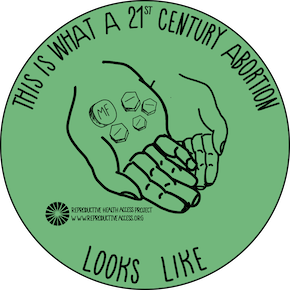Telehealth Care for Medication Abortion
Telehealth Care for Medication Abortion
During the COVID-19 pandemic, many health centers and clinicians rapidly transitioned and innovated in order to provide high-quality medication abortion care with minimal interpersonal interaction to protect against virus transmission. This involved forgoing ultrasound in patients without explicit need for it, counseling via telehealth, taking at-home pregnancy tests, offering remote follow-up care if patients desired, and even mailing the medications. While some of these changes began well-before the pandemic, the need for social distancing compelled more and more health centers to innovate rapidly.
Clinicians and academics began calling this kind of care “no-touch” or “no-test.” “No-touch” reflected the lack of physical contact in medication abortion care, stressing safety and reducing risks of virus transmission. “No-test” emphasized the simplicity. However, both messaging options also allow for negative assumptions and stereotypes about medication abortion care. For some people, medical tests are valuable tools for health care and touch is an important part of care, compassion, and healing.
To destigmatize these innovations in medication abortion care, we renamed our resources from no-test/no-touch to “telehealth care for medication abortion.” This change came out of recommendations generated by a collaborative brainstorming process led by the EMAA project with over 55 organizations representing patient advocates, policy advocates, clinicians, and researchers. Putting “telehealth” language front and center allows the movement to increase the familiarity of telehealth, connect abortion care with general health care, reinforce safety and effectiveness of medication abortion care, and mainstream telehealth even after the pandemic.
We recognize, not all clinicians are able to provide telehealth care for medication abortion and/or to forgo ultrasound due to restrictive, unnecessary state laws banning this form of abortion care. These state laws are not based in science or evidence, and only harm patients by delaying and stigmatizing their health care. We cannot have true reproductive health equity, dignity, and freedom without dismantling these structural barriers to care.

